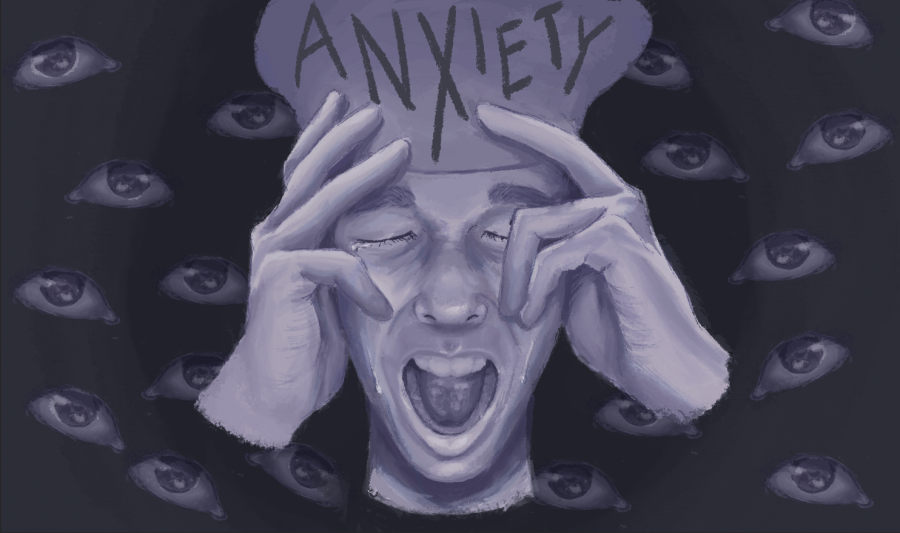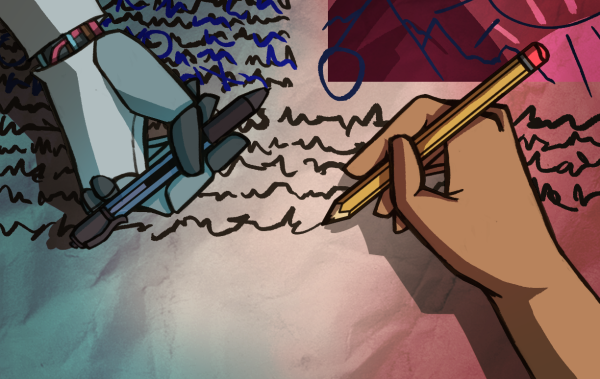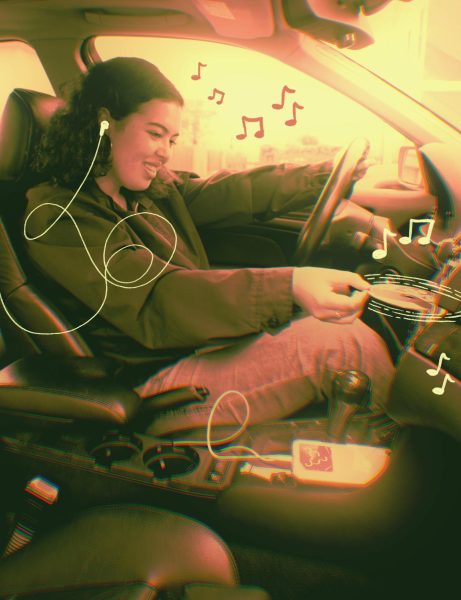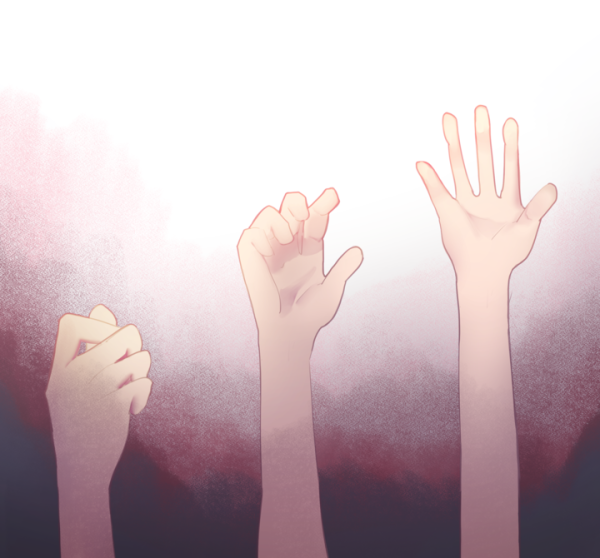Keeping My Head Up: My Battle With Anxiety
It started off small, just a slight pressure in the front of my head. But as thoughts swirled around in my brain and my hands started shaking, I realized everything was intense. The sound of my ninth grade biology teacher’s voice was too loud, the sunlight streaming in from the windows too bright and everything was too much to handle. My head was down on the wooden surface of my desk as I tried to hold back a spiral of stress. I could feel my heart rate increasing as my vision blurred. I can still feel the stress–the stomach plummeting, head spinning stress of an anxiety attack.
I knew I should have just picked my head up. At that moment, the only thing I could focus on was the shame. I was embarrassed that I could not just be normal, that now instead of knowing me for how good I was in my classes, my classmates would know me as “that kid who freaks out in class because of a test later that day.”
I stumbled out of class with my eyes barely open. The uncertainty on my teacher’s face was burned into the back of my head. He did not know how to deal with what happened, just waved me out of the door and went back to the lesson. They had no real idea of what to do when someone has an anxiety attack.
For the rest of the day I was twitchy and on edge, unable to calm down. I pushed myself away from my friends, purposely ignoring them and hiding away in the library at lunch so I did not have to deal with any questions. Seeing people was hard enough on normal days; it was too hard to handle at that point. My goal was just to make it through the day and the history test by any means necessary and try to calm down by the time I got home.
As usual, when I got home later that day, my parents pestered me with questions, trying to hold onto the idea that they still knew everything about my life. I dodged their barrage of “how was your day” and “were your classes good” My parents did not know that for the first few months of high school, it felt like every night I would either be texting a friend in order to stop an attack or looking up techniques to stay calm. I was sure the moment I told them anything about my anxiety they would panic and I would be transferred from Lowell in the blink of an eye. I wasn’t ready to deal with that reality, so I internalized the anxiety. This wasn’t the smartest option, but I was not focusing on the smartest option. I was still trying to keep up the image of being normal. I was paranoid.
“I was playing a game of subterfuge and secrets, where winning meant just staying on the ball.
Anxiety affects everyone differently, and my main pressure point is social anxiety. Each day, even if I am not stressed, I spend my time second guessing each of my actions. I assess the pros and cons of every step I take. I am not an introvert; I enjoy people, but at the same time their judgment can destroy the sliver of self-confidence I posses. To keep my façade of calm intact, I come off as cocky, witty and blunt. My anxiety has come to shape even the quick waves of hello I give in the hallways.
I was playing a game of subterfuge and secrets, where winning meant just staying on the ball. I had been doing this for years. If I made it seem like I knew everything and was more capable than I actually was, I thought people would just see me as a perfectionist instead of the anxiety-ridden person I am.
The main problem that kept me from getting help with my anxiety was the constant stress about society’s expectations. I knew that I would be much more comfortable if my friends did not get weird looks on their faces when I mentioned needing to see a therapist. I would have told more people about my anxiety if I did not expect the initial reaction to be one of judgment. If someone had told me that seeking help would not make me a freak or a weirdo, I would have done it much earlier.
Dealing with anxiety is not uncommon, but it’s more difficult than many people realize. Despite the awareness and support offered, there are still problems with how that support reaches the people who need it.
Luckily, after taking the advice of a friend and starting to see a therapist, I was able to realize that I needed help before I burned myself out. With the help of the weekly sessions, I have adopted a calmer mindset. I still have anxiety and it is a struggle to keep my head above water, but it has gotten better. Mental health problems don’t just disappear, but at the end of the day, I know I am more than my anxiety. I am the one holding the pen that writes my future. I will write my own narrative even if my hands shake as I do so.













